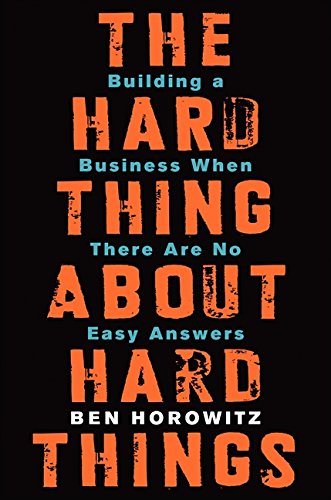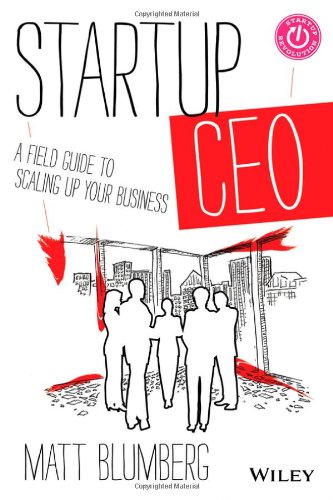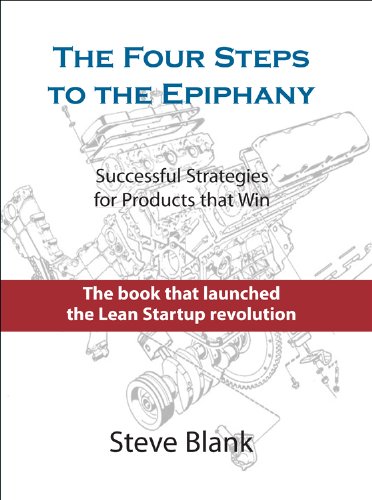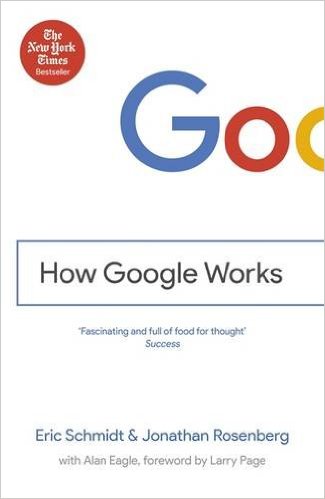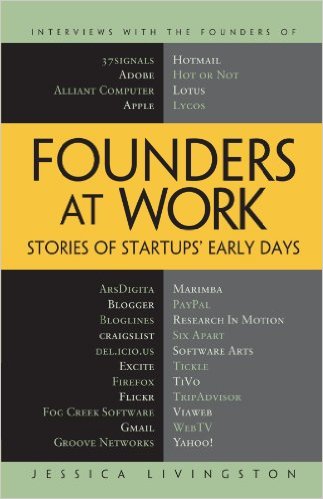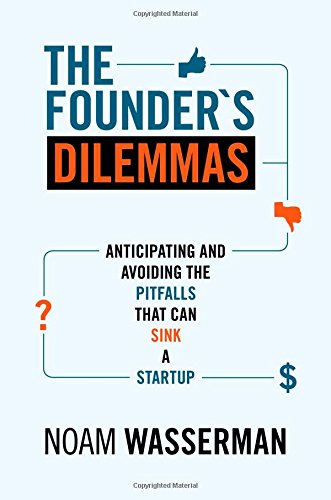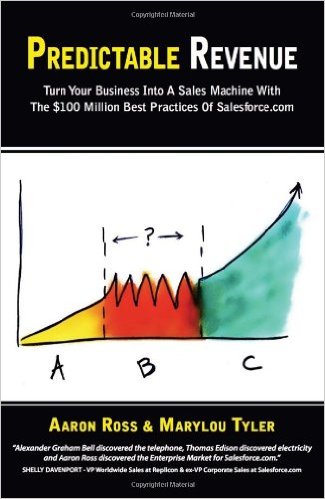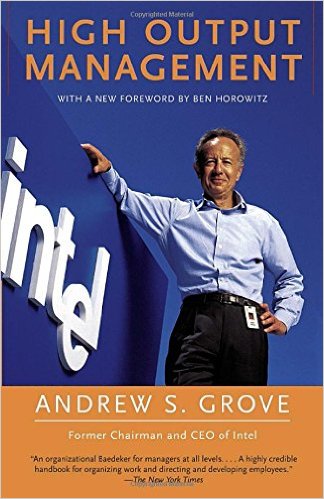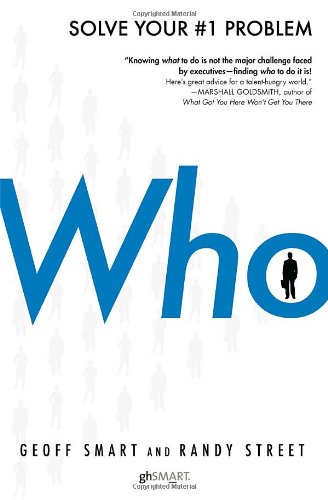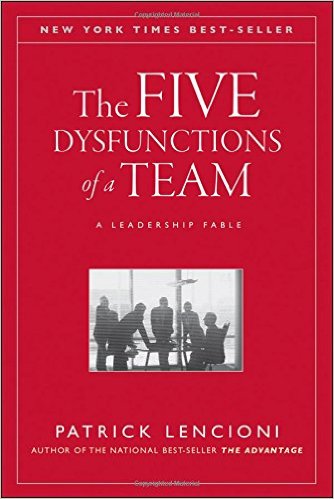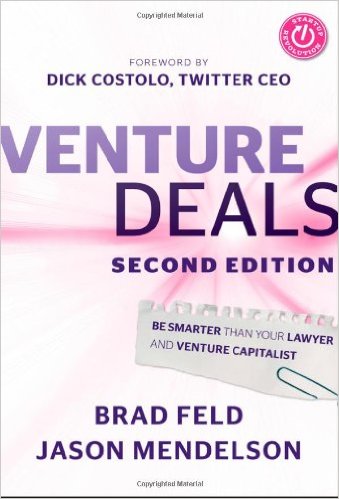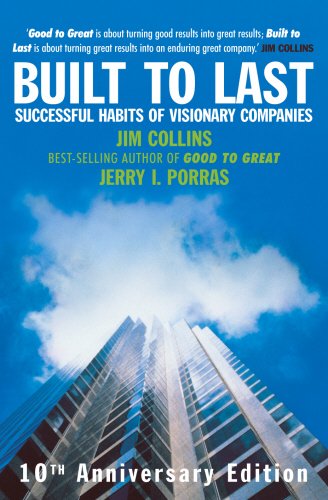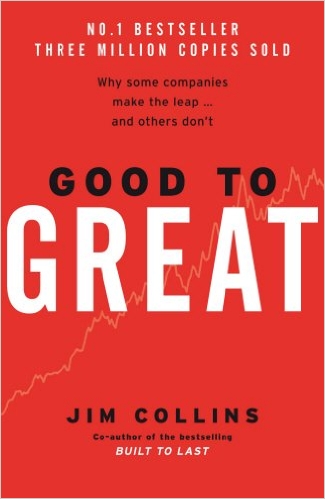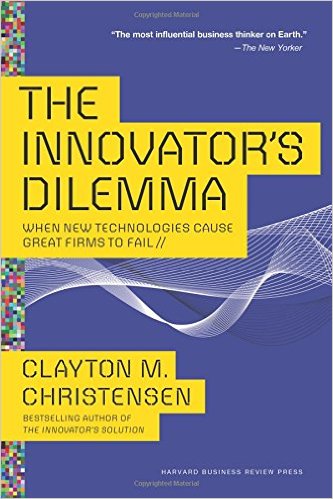We’ve taken the scenic route at Kayako: we’ve bootstrapped to more than 120 people.
As we’ve grown from 5 to 20 to 50 to 100 and beyond, everything we had learned to get us to each point suddenly stopped cutting it.
Stuff we finally thought we had a handle on became obsolete within months.
For founders, constant reinvention and relearning is the order of the day. One year you’ll be doing the job of six executives, and in the next you’ll be managing just as many.
One of the ways Varun and I have tried to accelerate those learnings at Kayako and ensure we are equipped to scale ahead of time is by reading. Reading a lot.
We’ve had the privilege of getting know many amazing startup veterans and investors alike. Whenever we meet new ones, we ask this question:
When you invest in a startup, which books do you recommend to the founders?
This is a list of the best of those recommendations. Books for founders who need to hack their way to levelling up business, executive, and management skills. The skills needed to build and scale startups of all stages.
14 best business books for founders and entrepreneurs
Take our advice: start reading today. Future you will be eternally grateful.
1. The Hard Thing About Hard Things
By Ben Horowitz (@bhorowitz)
Chronicling various phases of Horowitz’s journey as a founder CEO, The Hard Thing About Hard Things is an easy-going read, and one you’ll find yourself bookmarking the hell out of. Aside from the gripping it-can’t-get-any-worse-than-this and holy-shit-it-did-get-worse moments, Horowitz shares an array of practical advice from the coalface.
Some of my biggest takeaways include incredibly practical people management advice, ranging from the importance of consistency in promotions and rewards, and how to make the most of your team through one-on-ones and performance management.
2. Startup CEO
By Matt Blumberg (@mattblumberg)
Return Path CEO Matt Blumberg’s book is a field guide for first-time founder CEOs.
From hiring to firing, from family to working with a personal assistant, from running a board meeting to developing an investor story, it is a big ask from 400 pages. But the book doesn’t claim to be a dissection or essay on each and every topic.
Instead, it is full of digestible, pragmatic and accessible advice, with perspectives contributed from other experienced entrepreneurs. Absolutely readable and certainly one you’ll find referencing later: “I wonder what other people did about X.”
3. The Four Steps to the Epiphany
By Steven Gary Blank (@sgblank)
Steve Blank is famous for his theory on customer development centered strategy, and this book is the gospel. It is essential reading for anyone trying to build and bring a product to market.
All of The Lean Startup principles you may already know of are rooted in the theories and strategies set out by Blank: customer development, product-market fit first, understanding your market and iterative vs linear execution before ramping up sales and marketing.
It is therefore fitting that this review, by Eric Reis of The Lean Startup variety, wrote the best introduction and summary of The Four Steps to the Epiphany.
As Reis notes, The Four Steps to the Epiphany is a turgid read, more workbook than narrative.
4. How Google Works
By Eric Schmidt (@ericschmidt) and Jonathan Rosenberg (@jjrosenberg)
Google is an equally amazing software engineering company as it is a culture and organisation engineering company.
Eric Schmidt (former CEO of Google, now executive Alphabet, Inc) and Jonathan Rosenberg, former SVP of Products at Google) takes us on a tour of the tools, principles and values Google uses to scale talent, culture and people management.
Through stories explaining the why as much as the how, the book is thoroughly actionable for startups of all sizes. Some of our favourite bits include promotion committees, performance management, goal setting, the peer interview process and how Google coaches a squad of elite interviewers.
Bonus: Also check out reWORK from Google for an even more detailed dive into the “practices, research, and ideas from Google and other organizations to put people.”
5. Founders at Work
By Jessica Livingston (Jessica Livingston)
Jessica Livingston is, among many things, a founding partner of Y Combinator, which has placed her in the ideal position to compile a book like this.
Founders at Work is 33 chapters of stories from founders of some of the world’s most prominent and successful startups and products, including HOT or NOT, Gmail, the Internet Archive, Hotmail and PayPal.
Each chapter takes an interview style, covering a multitude of startup hurdles, tribulations, failures and successes, with interviewees answering questions like “Which competitor were you most scared of, and why?” and “Did you like and approve of the hire of this new CEO?” — it truly allows you to get into the head of some great founders and how they’ve approached some incredible challenges.
6. The Founder’s Dilemma
By Noam Wasserman (@noamwass)
With the benefit of hindsight, almost all founders will realise that many of a startup’s threats come from the inside and are conceived in the early days, without anyone realising it: difficult conversations that were not had, cans kicked down the road and formalities that were skipped.
Noam Wasserman (Professor at Harvard Business School), walks the reader through all sorts of dilemmas: whether or not to quit your day job, all the way through to how to distribute equity, parting-ways agreements, the mutual benefits of vesting schedules, how to structure the team early on, title inflation and wealth-vs-control dilemmas.
Wasserman hands founders a crystal ball of what could (and, in our experience, will) happen if these things are overlooked.
In the book, Wasserman takes a thoroughly — and much needed — pragmatic and rationalist view of what are otherwise highly charged subjects, walking the reader through the pros and cons of dealing with things sooner or later, or choosing one approach over another.
7. Predictable Revenue
By Aaron Ross (@motoceo) and Marylou Tyler (@maryloutyler)
Recommended to us by (among others) Ari Helgason from Transition
Predictable Revenue is a gospel in the bible of building a SaaS business. High growth and scale comes from a large, high quality pipeline and a high performance sales process.
This book is targeted at founders without a sales background, walking them through some of the processes, techniques and specialisations employed by Salesforce.com (and anecdotes from some other businesses) to get to $100m in revenue and beyond.
It shows you how to build a pipeline and generate leads, how to prospect, how to sell and how to build, structure and lead a sales team.
8. High-Output Management
By Andy Grove
To underestimate the importance of honing your management skills is a folly. The better a manager you are, the more leverage you’ll have. You’ll scale better, and as a result your business will scale better.
A better manager will be able to build something (whether that is a process or a system), package it and enable someone else to run, scale and improve it. The quicker you’re able to do this, the more you’ll be able to delegate and the faster you’ll be able to build the rest of your organisation and get to a state of high performance.
High-Output Management by Silicon Valley veteran and Intel CEO Andy Grove is an introduction to the core underlying principles, art and science of good management. It is targeted at managers of any level: anyone whose main job is getting other people to produce something of value.
The book teaches readers (through thoroughly practical and down-to-earth advice) where best to focus your energies as a manager, how to understand things as a system and how to build teams and processes to support and enable others to create things and make better decisions.
Bonus: Ben Horowitz recently penned an excellent Introduction to High Output Management for the new edition of the book.
9. Who: The A Method for Hiring
By Geoff Smart and Randy Street
We set ourselves a goal at Kayako, which was to ensure every single hire we make raises the bar. Who has helped us achieve that. This book taught us not just how to hire better, but how to build a hiring engine.
This becomes possible when you take the perspective that hiring is a science. By applying the recommendations in this book, we swapped out hiring and interviewing voodoo with a repeatable and measurable process.
Who walks you through designing a process to prospect, interview and evaluate candidates, how to measure your hiring performance and ultimately how to hire better than anyone else.
Adopting the end-to-end process of Who may be overkill for most pre-growth stage startups, but it will certainly ensure a startup of any stage is equipped to interview and evaluate candidates better — especially if you’re intending to hire new key roles and senior executives.
Bonus: At Kayako, we use Greenhouse to run our hiring engine. We’ve found only Greenhouse had the capabilities to let us automate and scale a lot of the key suggestions set out in Who, including hiring and interview scorecards, multi-stakeholder and objective-driven interviews.
10. The Five Dysfunctions of a Team
By Patrick Lencioni (@patricklencioni)
Patrick Lencioni’s hypothesis is that there are five main human behaviours that can corrupt a team (and by extension, a company’s culture): those are absence of trust, fear of conflict, lack of commitment, avoidance of accountability, and inattention to results.
Lencioni’s book is aimed at leaders of all levels, setting out explicit instructions on how to build a team and design an organisation to prevent each of these behaviours form undermining team cohesion and performance. It is an easy and energetic read, set around a fictional organisation.
For us, The Five Dysfunctions of a Team was particularly applicable and valuable when thinking about how we organise our management team — and the kind of values and traits to look out for in our company’s leaders.
Bonus: Watch Patrick Lencioni on YouTube cover the big themes of the book.
11. Venture Deals: Be Smarter Than Your Lawyer and Venture Capitalist
By Brad Feld (@bfeld) and Jason Mendelson (@jasonmendelson)
A huge number of today’s most successful and fastest growing entrepreneurial businesses were financed by venture capital, yet the process of fundraising and the business of venture capital remains a mystery to most founders.
The fundraising process requires a significant amount of time. This means learning on-the-go will at best be very wasteful, and at worse a disaster.
Fred Wilson, Managing Partner of Union Square Ventures, puts it well in the book’s blurb:
My biggest nightmare is taking advantage of an entrepreneur without even realizing it. It happens because VCs are experts in financings and most entrepreneurs are not. Brad and Jason are out to fix that problem with Venture Deals. This book is long overdue and badly needed.
Venture Deals walks founders through the fundraising process: when to raise money, how to find the right type of investor, the pros and cons of different investment mechanisms, how to understand and negotiate the economics and control of a term sheet. By the end of the book, you will be equipped to talk competently with your prospective investors, hit the fundraising process on a strong footing and negotiate the best deal for your startup.
Bonus: Brad Feld has his own list of startup founder must-reads.
12. Built to Last
By Jim Collins (@level5leaders) and Jerry Porras
Both of Collins’s books, Built to Last and Good to Great, were recommended to Rand Fishkin, founder of Moz.com by Michelle Goldberg from Ignition Partners.
Built to Last is a thoroughly, classically corporate and American management book, but don’t let that put you off. The book bubbles with ideas, principles and approaches that are applicable to founders and executives of all sizes of business.
Through their study of some of America’s most successful businesses, Jim Collins and Jerry Porras challenge a number of received wisdoms about what makes great businesses great: that businesses need visionary leaders, a great founding ideas, a focus on beating competition and a focusing on maximizing profit.
Along the way, their analysis dives into the common traits they believe separate great businesses from the rest, such as a cult-like culture, a home-grown management team, BHAGs (Big Hairy Audacious Goals, and an obsessive emphasis on execution quality).
13. Good to Great
By Jim Collins (@level5leaders)
In Good to Great, Collins studies how some of the businesses studied in Built to Last became great in the first place, such Walgreens, Gillette, and Circuit City.
One of the most intriguing chapters of the book for me was A Culture of Discipline. Here, Collins identifies one of the strongest correlations between how good companies became great: discipline.
Not to be confused with tyranny or micromanagement, the reader is walked through how the those companies built a culture of self-discipline, which resulted in self-sustaining and propagating ownership, ideas and accountability — even as leaders stepped back from areas and projects.
Bonus: Jim Collins published a new book in 2009 titled From Good to Great to Gone — apparently, 11 of the 60 companies studied fell to mediocrity or worse. In this new book, Collins tries to unpick why.
14. The Innovator’s Dilemma
By Clayton Christensen (1952–2020)
The only certainty is change, and change is only getting faster, making Clayton Christensen’s book, published in 1997, as timely as ever.
Christensen sets out a number of scenarios, principles and studies that guide leaders through how to build foundations to ensure your organisation is able to instinctively respond and adapt to technological change and market disrupters.
The thesis is delivered through numerous stories of highly successful market leaders which had their leadership snatched away before anyone realised it was even happening.
Having a leadership position to be snatched away in the first place is of course a nice problem to have, but it is not something for future you to worry about.
Reading The Innovator’s Dilemma sooner will set you up with actionable ideas to use and think about as you build your team today to ensure that by the time you get there, you’re organisation is already on the best footing to innovate, stay ahead and defend its place.
Additional Read:
Zero to One by Peter Thiel and Blake Masters
This book is a must-read for founders aiming to build something truly unique. Thiel, a PayPal co-founder, argues that startups should focus on creating new markets rather than competing in existing ones, offering a bold, contrarian take on innovation and long-term strategy that inspires unconventional thinking.
The Mom Test by Rob Fitzpatrick
A practical guide to talking to customers without leading them to false validation, this book is a concise, actionable resource for early-stage founders. It teaches how to test ideas effectively by asking the right questions, making it an essential tool for validating startup concepts.
Traction by Gabriel Weinberg and Justin Mares
This book dives into how startups can achieve explosive growth by systematically testing marketing channels. Its “Bullseye Framework” helps founders prioritize the right tactics to scale their customer base, offering practical strategies for post-launch growth.
Lost and Founder by Rand Fishkin
Offering a raw, honest look at the startup grind, Moz founder Rand Fishkin shares his mistakes and lessons learned. This relatable perspective on navigating challenges and staying resilient provides founders with a candid view of entrepreneurship’s highs and lows.
Measure What Matters by John Doerr
Introducing OKRs, the goal-setting system used by Google and others, this book provides a practical tool for founders scaling their operations. It shows how to align teams and drive results through ambitious, measurable goals, ideal for growing startups.
Hooked by Nir Eyal
This book breaks down how to build products that keep users coming back, using the “Hook Model” to create habit-forming experiences. It’s a valuable resource for tech and consumer startup founders focused on boosting user engagement.
The Almanack of Naval Ravikant by Eric Jorgenson
Compiling the wisdom of angel investor Naval Ravikant, this book blends philosophy with practical advice on wealth, leverage, and decision-making. It’s a thought-provoking read for founders seeking clarity and a long-term mindset in their entrepreneurial journey.
Build by Tony Fadell
Written by the iPod and Nest creator, this book shares hard-won lessons on product development and leadership. It offers a modern take on building innovative products, both physical and digital, making it a great fit for product-driven founders.
An ending note
These books represent many people’s lifetimes of shots, misses, successes and failures, and we future founders are lucky that these authors taken the time to put pen to paper.
If you’re like us at Kayako, you don’t have to — and cannot possibly (unless you’re Elon Musk, then maybe)— execute every brilliant idea you read about or even apply every solution you discover to problems you’re currently facing. There just isn’t enough time or resources for you to do so right now.
But that’s fine.
Does it still make many of these books worth reading? I think yes, over time.
Even though we have only been able to apply perhaps 2% of the insight and ideas presented by these wonderful books so far. Varun and I have armed our memories and our subconsciouses with the failures, missteps and learnings of others.
So while we can’t apply everything today, we can make better, more informed decisions based on what we’ve learned from these books. And I highly recommend you do the same.
Happy reading — find me on GoodReads!
What books would you recommend for startup founders to read? Share them in the comments!

